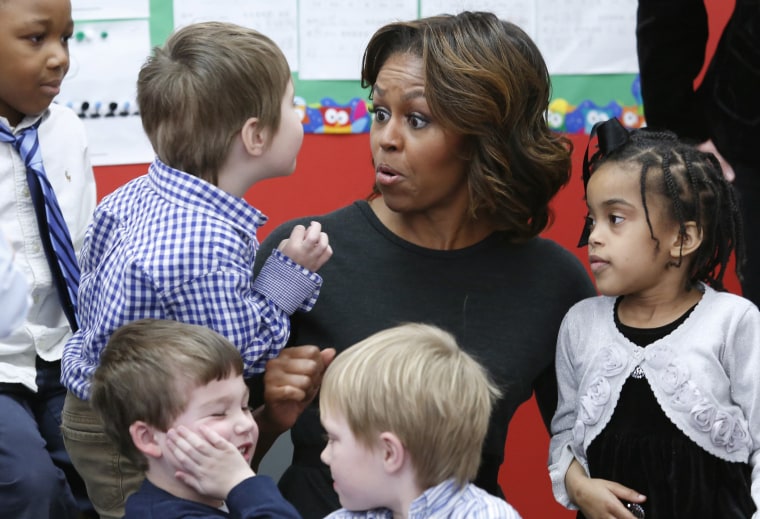There's nothing especially surprising about the notion that some kids will get into trouble and face school suspensions. But the fact that in the United States,
thousands of preschoolers get suspended, and the pattern disproportionately affects African-American children, is very surprising, indeed.
A staggering new report released by the Department of Education and the Justice Department on Friday highlights a troubling pattern of zero-tolerance school discipline policies that disproportionately impact minority students in general, but also trickle down to the nation's youngest students. Overzealous enforcement of school discipline policies and all of the negative outcomes associated with them are often framed around older children and middle and high school students, but the government's report shows just how deeply the disparities extend.
The entirety of the report is online
here.
"This data collection shines a clear, unbiased light on places that are delivering on the promise of an equal education for every child and places where the largest gaps remain," U.S. Department of Education Secretary Arne Duncan said this morning. "In all, it is clear that the United States has a great distance to go to meet our goal of providing opportunities for every student to succeed."
Judith Browne Dianis, co-director of the Advancement Project, told the AP, "I think most people would be shocked that those numbers would be true in preschool, because we think of 4- and 5-years-olds as being innocent."
"Shocked" is certainly the right word. Trymaine Lee's
report included this remarkable statistic: "While black children represent only 18% of preschool enrollment nationally, they make up 42% of students suspended once and nearly half of students who are suspended more than once."
Let's also not overlook the consequences of such punitive measures.
Suspensions lead to more absences, as students become disconnected from the school. In one study of 180,000 Florida students, researchers found that just one suspension in ninth grade can drastically reduce a student's chance of graduating in four years. What's more -- compared to their white peers -- black teenagers are more likely to be stopped by the police and arrested for drug possession, despite similar rates of drug use. When you put all of this together, you have a world where African American youth -- boys and girls -- have vastly higher rates of juvenile incarceration and are more likely to be sentenced to adult prison.... In other words, we have a status quo that's nearly designed to deliver the worst outcomes to African American students.
Good for Duncan and the Department of Education for shining a light on the problem. Now it's time for educators to address these policies in practical, sensible ways.
